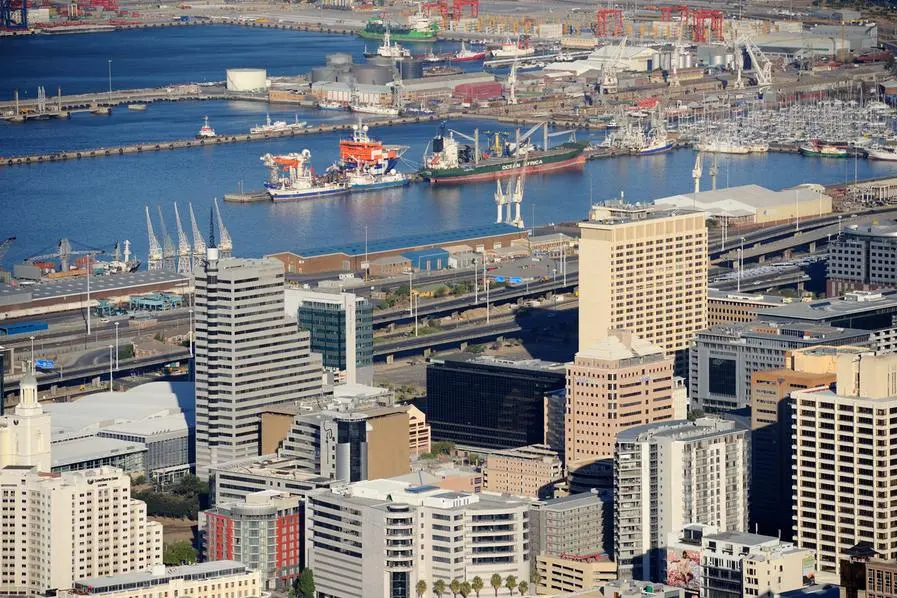PHOTO
With the US dollar having pulled back from the highs seen in the second half of 2022, this is an opportune time for South African investors to address domestic concentration risk if they have been overly exposed to local assets, according to investment advisory and wealth management firm GraySwan.
Aggressive interest rate hikes by the Federal Reserve, and a decline in risk appetite, pushed the US Dollar Index to a 20-year high during October 2022. The rand, which tends to bear the brunt of market shocks and a strong Dollar, subsequently slid to lows of around R18.40/$.
More recently, however, data releases have stoked optimism that interest rate increases may soon be a thing of the past. Together with China’s reopening, this has reduced pessimism in global financial markets, and the rand has recouped a large portion of its losses.
This presents an ideal opportunity to reconfigure investment portfolios that were previously not sufficiently balanced.
“South African assets remain attractively priced relative to other markets, but we believe it’s a good time for local investors to ensure they have adequate offshore allocations as this is crucial to managing risk and accessing global opportunities,” says Gregoire Theron, Chief Investment Officer at GraySwan.
Addressing ‘home bias’ – or an investor’s tendency to favour their home market because they understand it better than others – is a necessary step in building a balanced and resilient portfolio.
“Not only is this important for managing risk and smoothing returns, but it’s also about accessing a substantially larger opportunity set,” Theron says. “The South African market represents less than 1% of global equity markets.”
The US equity market (S&P500), for instance, is by far the world’s largest market, and has outperformed the JSE all-share index by more than 300% cumulatively over the past 10 years in Rands. It is important to understand that if you look at the relative performance in local currency i.e. the JSE all-share index in Rand vs S&P500 in USD has the JSE only under-formed the S&P500 by a cumulative 30% over the 10-year period. This clearly indicates the importance of diversifying your assets away from the Rand over the long term. Investors should look to allocate into other emerging markets which are also trading at cheap valuations, similar to the JSE.
“South Africa still has immense untapped potential, and local bonds and now cash offer compelling yields while equities are trading at low valuations,” Theron says. “Nevertheless, investors should hedge against political and economic risks in the country, including the increased frequency and severity of load shedding, which could weigh on local assets.”
Aside from geographic diversification, investors should consider allocations to assets that typically perform well during periods of US dollar weakness, such as gold, commodities and other emerging markets for example China, Taiwan, Brazil and India.
How much offshore is enough?
For investors at or close to retirement age – or those with regular income requirements – an appropriate level of offshore exposure would typically be between 25% and 35%.
Younger investors, who can take more risk, should strongly consider even higher allocations to global growth assets, particularly equities.
“However, it’s important to note that investing offshore brings additional risks and complexities, such as currency risk,” Theron says. “These risks can be managed effectively using tools such as currency hedging but this requires special expertise to implement. Our Investment Team at GraySwan have been implementing and utilising derivatives such as currency hedges successfully for more than 10 years. ”
“At GraySwan, we are advising clients to boost their offshore allocations if they are too reliant on the South African market. We’re also advising them on the most appropriate hedging strategies and investment vehicles, such as offshore unit trusts, exchange-traded funds (ETFs), exchange-traded notes (ETNs), direct investments, and structured products.”
To manage complexity and to reduce the cost of offshore inheritance taxes, for instance, some clients may benefit from offshore investment wrappers, which are structured with either an underlying endowment policy or an underlying sinking fund holding the assets.
“In this uncertain market environment, we believe well-considered offshore investment allocations will help to deliver superior risk-adjusted returns.”
About GraySwan Investments
GraySwan is an award-winning independent investment advisory and wealth management firm, serves investment advice through a global megatrend lens to institutional and corporate investors, financial planning and wealth management solutions to personal and family office investors. The wealth of their investment experience and the depth, strength and stability of their advisory and investment team amounts over 100 years. With offices in Stellenbosch, Somerset West and Johannesburg, the firm is one of the most experienced in terms of assets with over R16 billion under advice.
Copyright © 2022 AfricaBusiness.com - All materials can be used freely, indicating the origin AfricaBusiness.com Provided by SyndiGate Media Inc. (Syndigate.info).




















